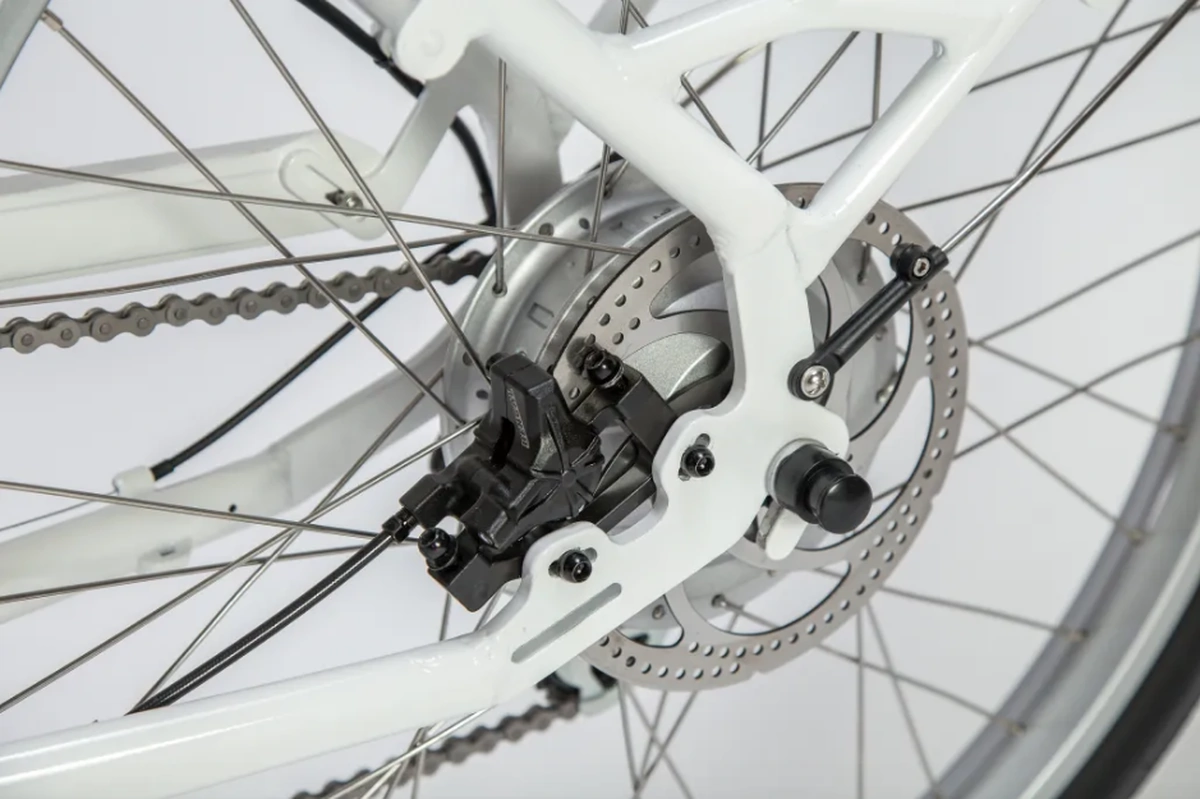With the increasing application of hub technology, many vehicles are also equipped with hub motors. People's demand for comfortable and safe travel is increasing, and they are paying more and more attention to the noise generated by vehicles while riding. Therefore, when purchasing a vehicle, it is inevitable to ask about the noise issue. Taking two-wheeled electric vehicles as an example, the main source of noise for two-wheeled electric vehicles is the motor. This article takes the commonly seen hub motor on the market as an example to discuss the noise problem of hub motors.
To understand the noise of hub motors, it is necessary to understand the structure of hub motors. Hub motors are electric motors integrated into the vehicle's wheels. They provide direct drive systems without the need for complex gearboxes. The basic components of a hub motor include the stator, rotor, and magnets. When current flows through the motor windings, it interacts with the magnetic field to generate rotational motion, propelling the vehicle forward.

The noise generated by hub motors mainly comes from two sources: electromagnetic force and mechanical vibration. Electromagnetic noise is generated by the interaction of the magnetic field inside the motor, usually manifested as a buzzing or humming sound. On the other hand, mechanical noise is generated by the physical movement of motor components, such as bearings and gears.
Several factors can affect the noise level generated by a hub motor. The design and quality of components such as bearings and gears play an important role. Additionally, the speed and load conditions at which the motor operates also affect noise generation. Proper maintenance and lubrication also help reduce the noise level of the hub motor.
At low speeds and loads, the carefully designed hub motor operates almost silently due to optimized air gap geometry, magnetic forces, and low rotational inertia. High-quality materials such as mechanical-grade copper in the windings help suppress resonance. The permanent magnets and laminated silicon steel core generate less noise than the magnetic field produced by the winding design. Precision-machined parts and balanced rotors reduce vibrations transmitted to the wheels and frame. All these design considerations result in a quieter operation compared to early hub motor prototypes. However, higher speeds or larger torque demands may produce more noticeable sound effects from the air gap, bearings, and gear mechanism, depending on the materials and structure. Nevertheless, well-made hub motors are still much quieter than internal combustion engines even during acceleration. Additionally, other vehicle components such as tires, brakes, and suspension also contribute to the noise profile.
A study linking recorded decibel levels to road travel has confirmed that hub motors have lower operating noise. Tests have shown that the peak noise level of hub motors during strong acceleration is similar to that of household appliances. Many users have also reported that they rarely feel any noise during travel. Overall, hub motors are much quieter than combustion vehicles when in operation. However, this is only a partial investigation, and the noise of hub motors may vary from person to person or differ depending on the brand.
Leave A Comment